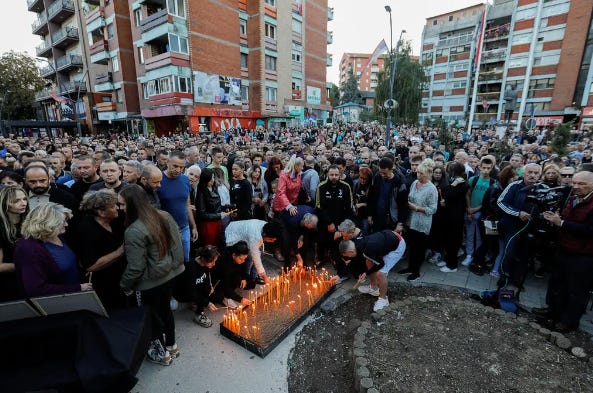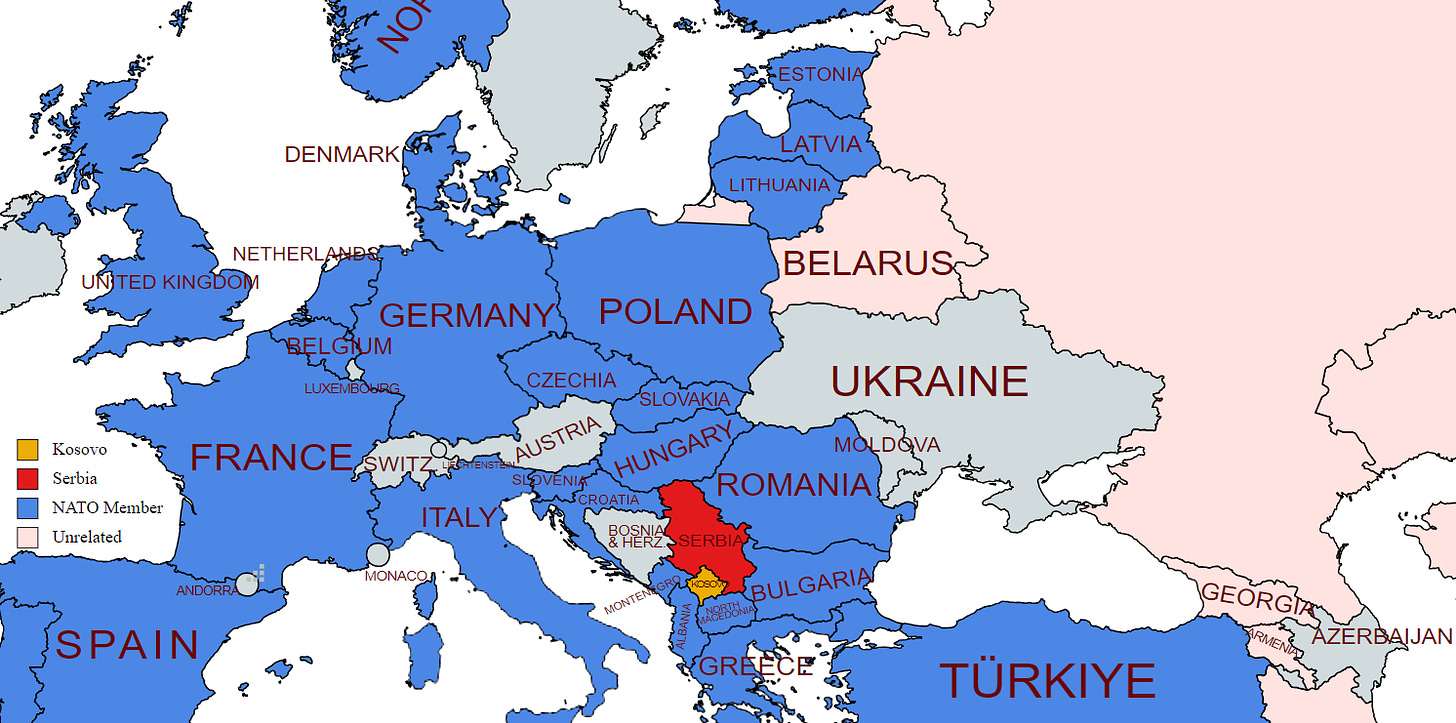NYT: White House Warns Serbian Military to Leave Kosovo Border
U.S. officials say the presence of Serbian troops on the border is another dramatic and worrying escalation in a conflict that dates back decades.
By Katie Rogers
Reporting from Washington
Sept. 29, 2023, 5:47 p.m. ET
The White House called for the drawdown of Serbian military forces along Kosovo’s border on Friday, a directive meant to bring renewed attention to a longtime territorial conflict that Western officials fear is again at risk of boiling over.
John F. Kirby, a spokesman for the Biden administration, denounced a Sept. 24 attack at a Serbian Orthodox monastery in northern Kosovo, during which over 30 ethnic Serb gunmen battled police, killed a Kosovo police sergeant and, Mr. Kirby said, endangered peacekeeping troops stationed there by the North Atlantic Treaty Organization.
“Everyone involved in this attack needs to be brought to justice,” Mr. Kirby told reporters.
The days since the attack have been marked by finger-pointing between Serbian leaders and authorities in Kosovo, who have publicly accused Aleksandar Vucic, Serbia’s president, of supporting the gunmen. American officials, including Secretary of State Antony J. Blinken, have called for both governments to stop doing anything that could cause more conflict. But Serbian forces have continued to amass near the border, a development that Mr. Kirby called “destabilizing.”
Kosovo, where a majority of the population is ethnic Albanian and Muslim, declared independence from Serbia in 2008, almost a decade after NATO’s bombing campaign that drove Serbian forces, responsible for years of brutal mistreatment of ethnic Albanians, from Kosovo. Since then, the two countries have clashed over Kosovo’s treatment of its minority ethnic Serb population. Belgrade has never officially recognized Kosovo’s independence.
Fighting broke out in the spring, when the Kosovan government deployed its security forces in several towns to install the ethnic Albanian mayors who had won in local elections. Local Serbs had mostly boycotted those votes. But U.S. officials say the presence of Serbian troops on the border is a dramatic and worrying escalation.
The White House did not say on Friday whether the tension was expected to spill over into a military conflict, but in detailing the monastery attack, Mr. Kirby said it was obvious to U.S. officials that the effort had been highly organized. The gunmen, he said, had access to over a dozen S.U.V.s that were transporting weapons with “alarming sophistication” — a sign that there were substantial resources behind them.
“This is not the kind of attack that is carried out randomly or ad hoc or by some small group,” Mr. Kirby added. The amount and the types of arms that were found represented a threat not only to Kosovan personnel, he said, but also to international personnel, including NATO troops.
Mr. Kirby said there would be an increase in NATO troops to the area, and on Friday, Jens Stoltenberg, the secretary general of the alliance, said it stood “ready to make further adjustments to KFOR’s posture as required,” using an acronym for the NATO-led peacekeeping mission that has operated in Kosovo since 1999.
U.S. officials, including Mr. Blinken and Jake Sullivan, the president’s national security adviser, reached out to Serbian and Kosovan leaders on Friday to relay their concerns and urge diplomatic dialogue, Mr. Kirby said, calling “progress on the diplomatic front critical.”
Katie Rogers is a White House correspondent, covering life in the Biden administration, Washington culture and domestic policy. She joined The Times in 2014. More about Katie Rogers
**For reference, here is a map of Kosovo, Serbia, and surrounding NATO countries




